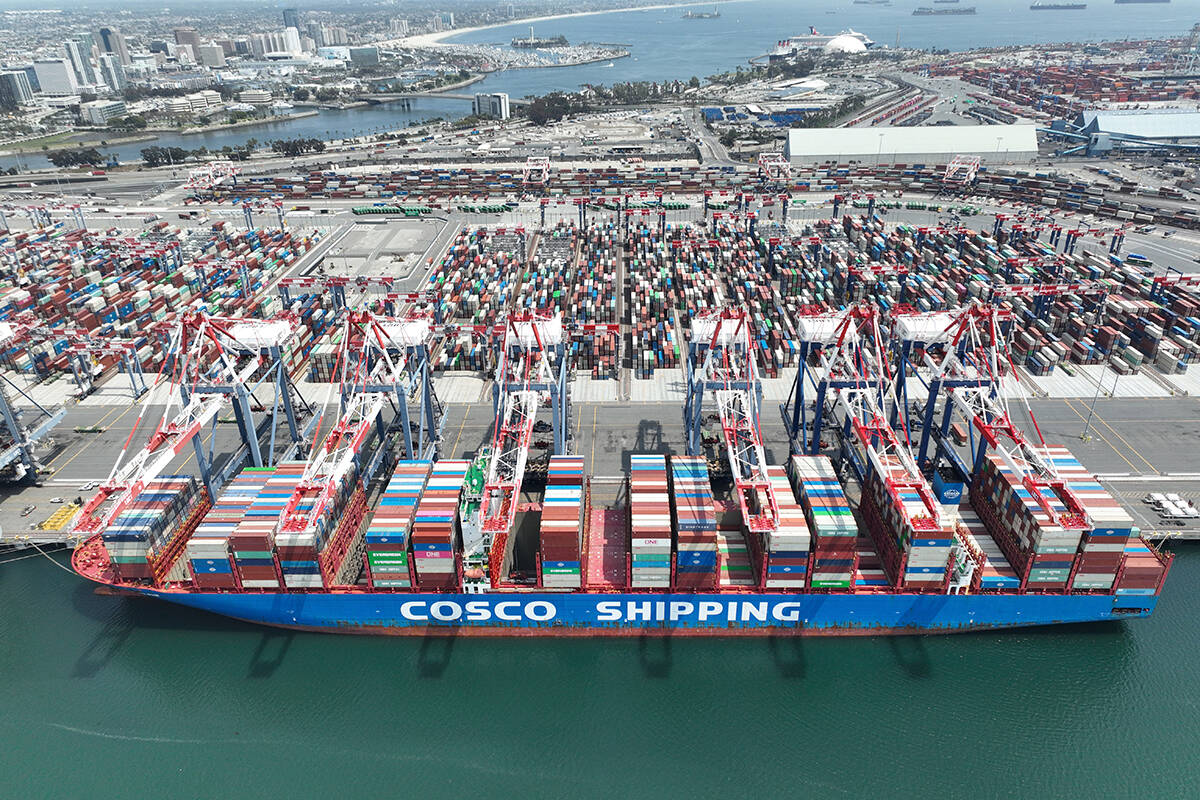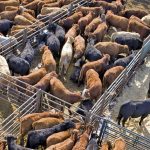Producers balk at prices
American hog packers lowered their bids last week due to sufficient hog supplies, weaker pork demand and unsatisfactory profit margins.
Producers were reluctant to sell hogs at the lower prices so packers may have to raise their prices next week.
Iowa-southern Minnesota hog prices (plant top, 51-52 percent lean, live equivalent) fell from $57.75 (U.S.) per hundredweight at the beginning of the week to $55.50 by June 16.
On June 15, the range was $41.75-$55.50 with a mean of $50.88, down $1.53 from the Friday before.
Read Also

U.S. softens fees on Chinese shipping
The U.S. starts charging new fees on Chinese ships on Oct. 14. What are the ramifications for their ag exports?
Although not as strong as packers would like, demand remains relatively strong.
Manitoba Agriculture says that with United States hog slaughter about three percent below last year’s level, it is not likely that hog prices will decline as much in the coming weeks as they did in 1999.
The June 1 U.S. Department of Agriculture hog inventory report is expected to show that the U.S. hog herd has declined by two to three percent from a year ago, which could boost hog prices.
Packer demand strong
American and Ontario packer demand helped keep Canadian fed cattle prices steady with the week before.
Prices June 14 were steers $92-$94.10 per hundredweight, flat rail $154.45-$155.20 and heifers $92.25-$93.50, flat rail $155.25.
Wholesale beef prices are steady this week with the Montreal price at $157 per cwt. and the Calgary steer price in the range of $143-$162. Byproduct values were steady.
Canfax said most western packers are working Saturdays, helping to maintain demand.
The number slaughtered last week topped 70,000 head nationally with Alberta flirting in the low 50,000s.
Beef sales continued strong, helping to keep cattle prices steady.
Canfax said the direction of the U.S. market and the activity of American packers over the next several weeks will play a large role in the western Canadian market.
Carcass weights are creeping up, which is seasonally normal, but packers are expected to use their weight discounts on a more regular basis from here on in, Canfax said.
June 15 USDA cattle on feed report showed numbers at the high end of analysts’ expectation.
It was expected to lower cattle futures prices.
Cows traded steady, said Canfax, with reports still coming in from dry areas of ranchers bringing cows to market.
Most D1, 2 cows ranged from $58-$64 per cwt. and are expected to have trouble hanging on this week.
Feeder cattle prices were steady to stronger.
Yearling prices were particularly strong with one package of 830 lb. heifers on June 16 selling for $131 per cwt. Volume on offer fell.
Rain helped some prairie pastures, but parts of southeastern and southwestern Alberta are still in trouble and this might force some yearlings to market.
In light stock cow trade, bred cows ranged from $820-$1,250, with bred heifers $800-$1,125.
Cow-calf pair sales were $930-$1,900.
















